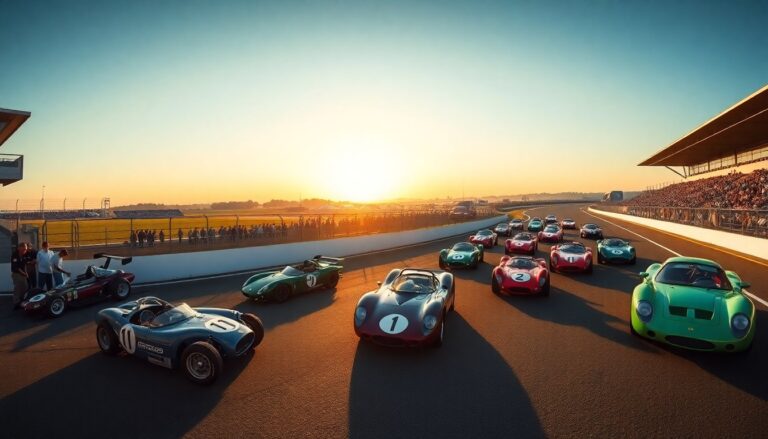Argomenti trattati
Motor sport has captivated audiences for over a century, evolving from simple racing events into a multi-billion dollar global industry. This transformation has been driven by technological advancements, changing audience engagement, and the increasing allure of speed and competition. In this article, we will examine the rich history of motor sport, the technological innovations that have shaped it, and the future prospects of this exhilarating field.
The Historical Roots of Motor Sport
The earliest forms of motor sport can be traced back to the late 19th century, coinciding with the rise of the automobile. The inaugural automobile race, the Paris-Rouen race of 1894, is often considered the beginning of organized motor competition. This event highlighted the potential of the automobile, as competitors raced over a distance of approximately 126 kilometers.
As the 20th century approached, motor sport began to gain significant traction. The Gordon Bennett Cup, established in 1900, played a crucial role in formalizing racing and attracting international competitors. Initially, these races were rudimentary, focusing primarily on endurance rather than speed. However, as technology progressed, the emphasis on speed became paramount, leading to the development of more sophisticated vehicles.
The Rise of Professional Racing
The post-World War II era marked a pivotal moment for motor sport, with the establishment of professional racing leagues. The Formula One championship made its debut in 1950, quickly becoming the pinnacle of racing. This league introduced a new standard of professionalism and global reach, attracting manufacturers and sponsors alike.
During this time, other racing formats such as rallying and touring car races gained significant traction. These diverse formats not only attracted a broader audience but also highlighted various aspects of driving skill and vehicle performance. The surge in popularity led to the rise of televised events, bringing motor sport into living rooms worldwide.
Technological Advancements in Motor Sport
Motor sport has historically been a catalyst for technological innovation. Each era has introduced remarkable advancements that have revolutionized both vehicles and the sport itself. From the adoption of aerodynamics in the 1960s to the integration of hybrid technology in contemporary racing cars, these innovations have continually pushed the limits of speed and efficiency.
Among the most significant advancements in motorsport is the emergence of telemetry. This technology empowers teams to gather real-time data from their vehicles during races, facilitating precise adjustments and strategic decisions. Additionally, the integration of simulators has become standard practice, enabling drivers to hone their skills in a controlled environment prior to competing on the track.
The Impact of Digital Media
As the digital landscape evolves, motorsport has actively adopted new media platforms to connect with fans. Social media, streaming services, and specialized apps have transformed how audiences access racing content. This transition not only enhances reach but also cultivates a sense of community among enthusiasts.
The rise of esports has significantly blurred the lines between traditional motorsport and digital competition. Sim racing has gained considerable popularity, attracting professional drivers who compete in virtual formats. This trend is drawing a new generation of fans, eager to engage with the sport. Events like the FIA Gran Turismo Championships illustrate how digital platforms can seamlessly merge with traditional racing, creating exciting new opportunities for both participants and spectators.
The Future of Motorsport
Looking ahead, the future of motorsport is set for continued evolution. As environmental concerns intensify, the industry is increasingly focusing on sustainability. The introduction of electric racing series, such as the Formula E championship, exemplifies a commitment to reducing carbon footprints while preserving the thrill of competition.
Technological Advancements in Motorsport
The integration of advanced technologies such as artificial intelligence and machine learning is poised to significantly transform race strategies and vehicle performance. These technologies enable teams to analyze vast amounts of data, facilitating informed decisions that may enhance their competitive edge.
The Future of Motorsport
In summary, the world of motorsport is a dynamic and ever-evolving arena. From its modest origins to its current status as a global spectacle, it continues to engage and captivate audiences worldwide. As new technologies and methodologies are adopted, the future of motorsport is expected to remain as thrilling and unpredictable as the races themselves.

